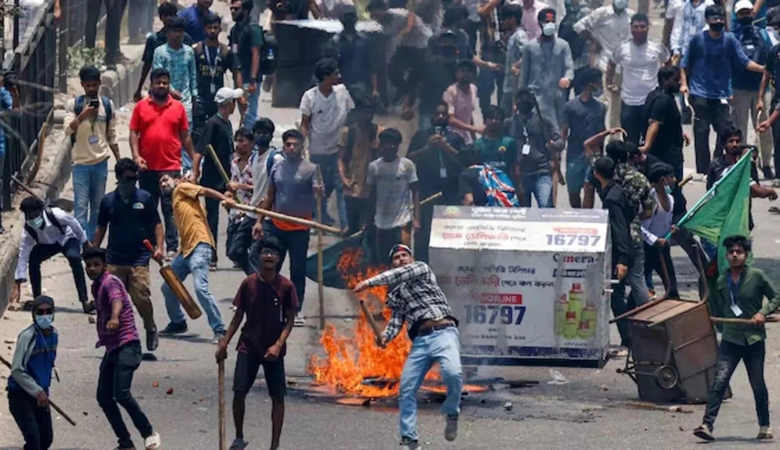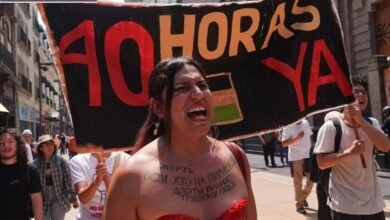Bangladesh Supreme Court Reduces Most Job Quotas Amid Deadly Protests

News Mania Desk/Agnibeena Ghosh/21st July 2024
On July 21, Bangladesh’s Supreme Court made a landmark decision to significantly reduce the quota system for government jobs, following intense student-led protests that have resulted in over 130 fatalities. The ruling comes after escalating unrest in the country, where students have faced violent clashes with security forces, and foreign students have been compelled to return to their home countries.
The Supreme Court’s decision slashed the government job quota from 30 percent to just 7 percent. Initially, this quota reserved a substantial portion of government positions for the families of 1971 independence war veterans. This provision had been a point of contention, leading to severe confrontations between demonstrators and law enforcement officials.
Under the new ruling, the majority of government jobs—93 percent—will now be allocated based on merit rather than quota. Attorney-General A.M. Amin Uddin announced that the Supreme Court deemed the High Court’s previous verdict, which had reinstated the quotas, as illegal. He clarified that the revised policy would maintain a 5 percent reservation for the children of independence war veterans and an additional 2 percent for other categories.
The Supreme Court has also appealed to the protesting students to return to their academic pursuits. Shah Monjurul Hoque, who represented two students challenging the quota system, reported that the court’s order emphasized the need for students to resume their classes amid the ongoing turmoil.
The court’s ruling follows a recent High Court decision that reinstated the quotas, leading to a surge in protests across Bangladesh. These protests, which began in response to perceived injustices in the quota system, quickly escalated, prompting the authorities to impose a “shoot-on-sight” order for police and military forces.
In response to the escalating violence, the Bangladeshi government briefly lifted a nationwide curfew on Saturday to allow citizens to conduct essential activities. Prime Minister Sheikh Hasina’s administration has declared Sunday and Monday as public holidays, permitting only emergency services to operate. The curfew will be partially relaxed on Sunday evening between 3 pm and 5 pm to allow for necessary errands.
The crisis has also had a significant impact on international students, with nearly 1,000 Indian students returning to India due to the unrest. According to the central government, over 740 students crossed back into India via land routes, while more than 200 arrived by air.
As the situation continued to deteriorate, the Bangladeshi government extended the nationwide curfew to last through Sunday, deploying military forces to manage the unrest. The swift and severe response highlights the severity of the situation and the government’s attempt to restore order amidst a growing crisis.
This landmark decision by the Supreme Court is expected to be a turning point in addressing the long-standing issues related to the quota system in Bangladesh, potentially reshaping the landscape of government employment and calming the current unrest.






